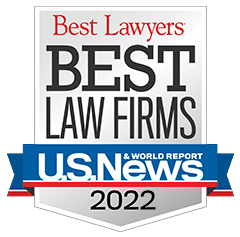Speeding, Reckless Driving, and Rollover Accidents
Reckless driving covers a range of behaviors that can cause a crash. Some occur more often or create bigger risks in Boston’s traffic.
Some of the dangers speeding causes include:
-
Inability to stop suddenly: Increased speed raises stopping distance. If traffic slows or stops ahead, it becomes harder to avoid a crash if someone is driving above the speed limit.
-
Inability to react to sudden changes in road conditions: Speed reduces the time drivers have to react when road or weather conditions change quickly. Water, ice, or poor visibility make it even harder to respond at high speeds.
-
Erratic overcorrection: When speeding drivers brake or turn too fast—often to avoid a ticket or a hazard—they risk losing control, sometimes causing the following vehicle to crash into them.
-
Decreased visibility: Speeding vehicles are harder to spot and judge for other drivers, especially in busy urban settings. A fast-approaching car can surprise others, leading to dangerous lane shifts or accidents.
-
Inability to make sharp turns: Exceeding the speed limit can make it nearly impossible to make emergency maneuvers or avoid obstacles, sometimes leading to a rollover.
-
Increased nervousness of other drivers: Aggressive, high-speed driving can unsettle other drivers, increasing the chance of mistakes and collisions.
All of these issues make driving more dangerous for everyone on the road.
Rollover accidents cause severe harm and often happen in vehicles with a high center of gravity, like SUVs and trucks. Sharp turns or excessive speed add to the danger. Wearing seat belts and properly distributing cargo inside the vehicle reduces rollover risk. By driving defensively and monitoring road conditions, drivers can avoid many of these serious outcomes.
Boston sees more reckless driving and speeding during rush hour or after city events—especially on major roads like the Massachusetts Turnpike and Soldiers Field Road. Heavy traffic and driver frustration can push some to take risks. The Boston Police Department and local safety groups continue enforcement and education efforts throughout the city to help prevent these dangerous behaviors. Staying aware and following local advisories helps reduce the risk of major accidents for everyone sharing city roads.
What Determines Car Accident Compensation in Boston?
Several factors affect how much compensation someone might recover after a car accident in Boston. These include the seriousness of injuries, the length and cost of medical care, lost income from missed work, property damage, and long-term impact on daily living. Good documentation—like medical records, wage statements, and repair bills—supports a stronger claim. State law sometimes reduces compensation if a driver shares any fault for the accident.
Boston’s major hospitals, including Massachusetts General Hospital, often provide the records needed for evaluations and negotiations. Local traffic and weather conditions, as well as witness accounts, can sway the outcome. At Crowe & Harris, LLP, cases receive a team approach, blending legal and medical knowledge to organize these critical details. Working closely with clients, we make sure all important local facts and unique circumstances are weighed throughout the case.
Reach out to a skilled collision accident lawyer near you in Boston by calling (617) 404-3417 or filling out our online form.
Understanding Boston-Specific Traffic Laws
Boston’s historic streets and dense traffic bring unique rules that drivers must follow. For example, Boston has strict right-of-way guidelines at its many rotary intersections, a common feature around the city. Failing to follow these rules can affect liability in a crash and change insurance claim outcomes.
Massachusetts’ distracted driving law, which Boston enforces, bans handheld devices while operating a vehicle. Residents and visitors both need to watch for local parking limits, street sweeping, and permit rules, all of which the city enforces regularly. Knowing and following local traffic regulations keeps everyone safe and reduces the chance of a claim denial or dispute after an accident.
State law requires every driver to maintain minimum insurance coverage, including personal injury protection and uninsured motorist coverage. Many new residents are surprised by signage warning to yield to pedestrians—especially near college campuses such as Boston University—or by the need to navigate one-way streets in historic neighborhoods like Beacon Hill. Crowe & Harris, LLP's team stays current on these local traffic ordinances and helps clients address any legal issues that might arise as they work through their claims in Boston.
How Weather Impacts Driving in Boston
Boston’s changing weather brings a range of concerns for drivers. In winter, icy roads often cause skidding and accidents, especially at busy intersections or on elevated highways. Heavy snow can quickly block roads and create dangerous conditions, making careful driving and seasonal tires a necessity.
Spring and fall bring rain and fallen leaves, making local roads slippery and demanding extra care from drivers. Boston’s constant roadwork during warmer months also increases detours and closures, so staying updated on conditions gives drivers an edge. Regular vehicle maintenance ensures better safety year-round—especially when unpredictable weather strikes.
Sudden weather shifts are common in Boston. Black ice often forms overnight in spring or fall, creating hazards many drivers do not expect. Trouble spots like the Southeast Expressway and Longfellow Bridge become riskier in freezing rain or snow. Keeping sand or salt in your vehicle and staying alert to local weather alerts helps everyone travel more safely. Our team’s experience handling weather-related claims means clients benefit from first-hand knowledge of how these factors come into play during the legal process.
Contact us at (617) 404-3417 to speak to one of our Boston car accident lawyers and get a free case review.
FAQs About Auto Accidents in Boston
How Does No-Fault Law Work in Massachusetts?
Massachusetts uses a no-fault insurance system, so drivers must include personal injury protection (PIP) as part of their insurance. After an accident, your own policy covers medical expenses and certain other costs, no matter who caused the crash. The law aims to provide fast coverage for minor injuries and limit unnecessary lawsuits, but also restricts when you can sue for pain and suffering.
You may pursue a liability claim against an at-fault driver for added damages, like pain and suffering, only if medical expenses rise above $2,000 or involve serious injury, loss of a limb, or significant loss of vision or hearing. Understanding these thresholds is essential when considering an auto accident claim. An experienced attorney can clarify your options and help you decide if your injuries meet legal requirements for pursuing additional compensation.
What Should I Do Immediately After a Car Accident in Boston?
After a car accident, check for injuries and move to a safe location if you can. Call 911 to report the incident and get medical help, even if you feel fine. A police report often proves vital later in insurance claims or any legal action.
When your immediate needs are handled, take photos of the scene, including vehicle positions, damage, and surrounding conditions. Exchange information with everyone involved, and collect contact details from witnesses. Avoid discussing who is at fault at the scene. Then, let your insurance company know right away and consider speaking with a local car accident attorney to understand your rights and next steps.
How Can I Prove My Injuries Were From a Car Accident?
To show your injuries are from a car accident, get prompt medical care and maintain clear records of all doctor visits and treatments. Even minor aches should be checked and recorded. Save every receipt, prescription, and update from care providers. This detailed documentation supports your claim with insurers or in court.
Take photos of injuries and accident damage, and gather witness accounts when possible. Your attorney can help organize this evidence for your claim. Strong, consistent documentation strengthens your credibility and increases the odds of fair compensation.
What Are Common Causes of Vehicle Accidents in Boston?
Vehicle accidents in Boston happen for many reasons. Frequent causes include distracted driving—like texting or handling a phone—and aggressive driving such as tailgating, unsafe lane changes, or speeding. Boston’s complex street system, rotaries, and frequent traffic all add to the risk.
Winter weather brings more collisions due to icy roads, and some drivers lack experience dealing with these conditions. Confusing intersections and heavy traffic make it even more important to drive vigilantly and keep your car in good condition to help avoid accidents.
Contact us online or at (617) 404-3417 to learn more about your legal rights and options from one of our Boston car accident lawyers.










